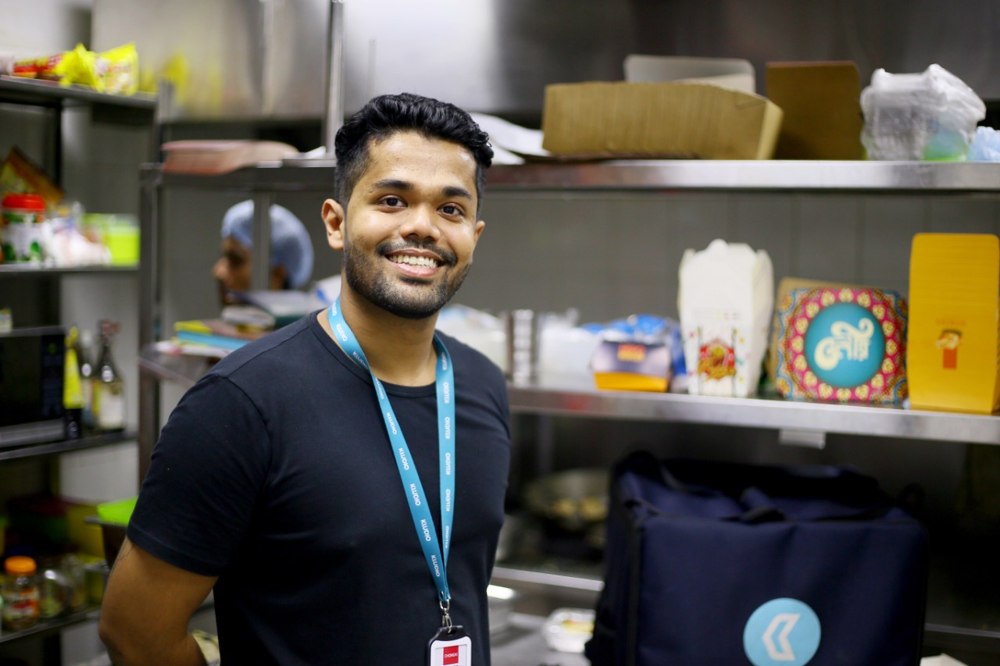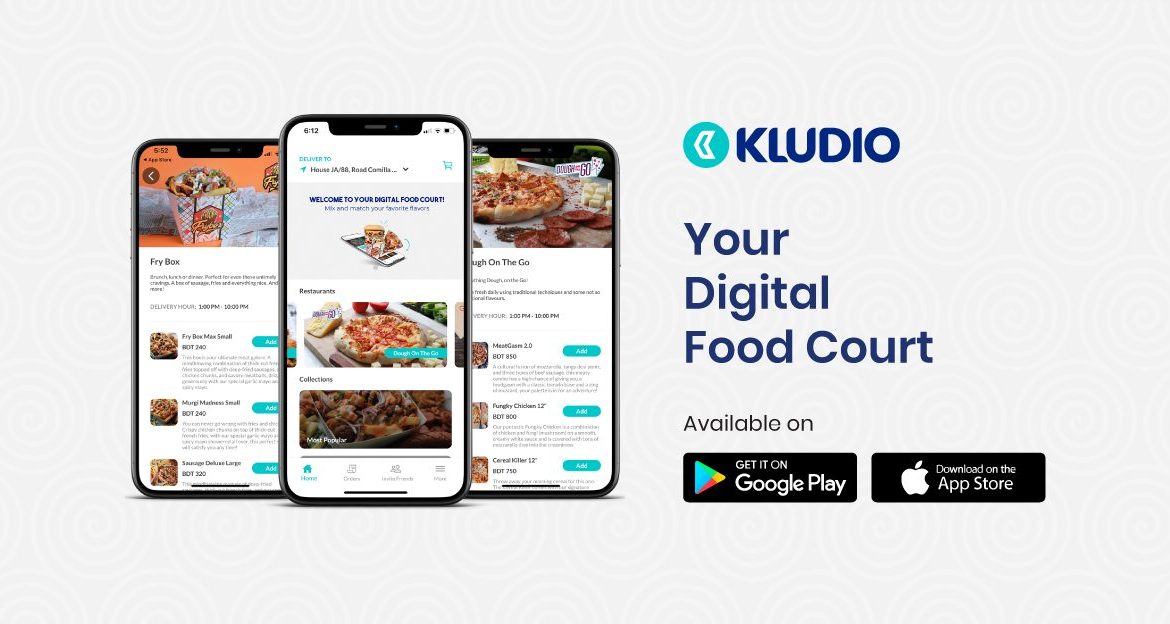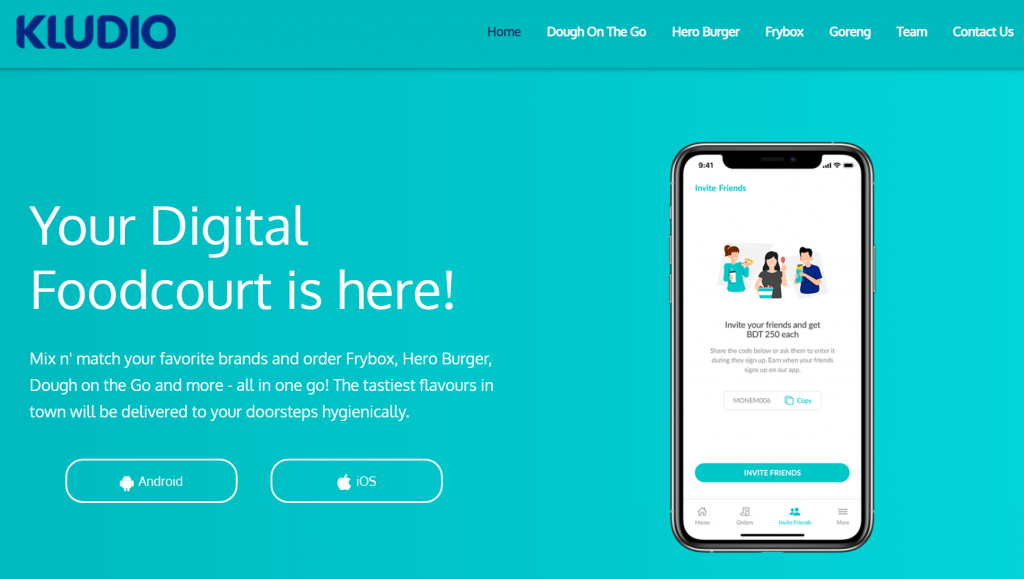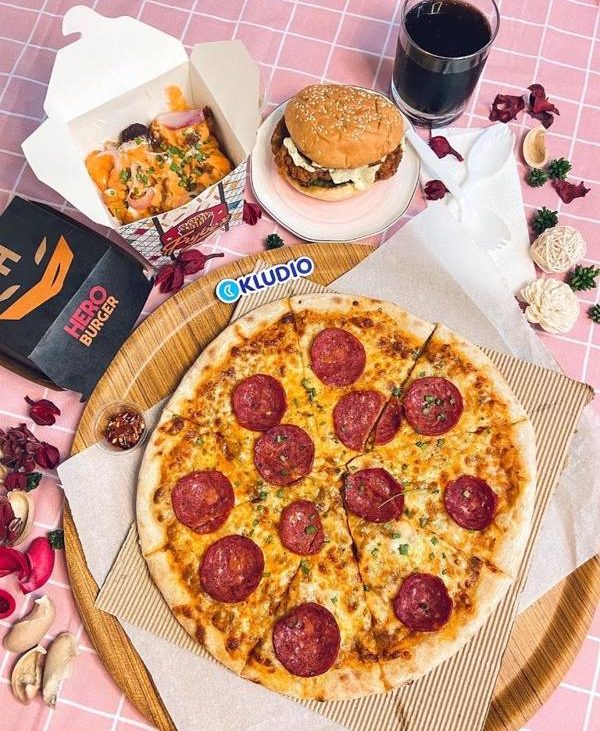
Kludio is a Dhaka-based on-demand food delivery company that defines itself as a “full-stack cloud kitchen and digital food court”. Founded in 2019 by Kishwar Hashemee, Kludio launched several food brands in multiple categories and currently delivers in Banani, Mohakhali, Gulshan, Bashundhara, DOHS areas. Prominent Kludio food brands include Dough On The Go, Fry Box, and Chowbox. All these brands are designed, owned, and managed by Kludio.
Cloud kitchens have become a thing over the past few years as food delivery companies continue to gain popularity across markets. Cloud kitchens are restaurants that don’t maintain a dine-in outlet and instead, sell directly to customers through on-demand food delivery platforms or directly sell and deliver to customers. Since they don’t offer dine-in, these kitchens can operate out of less expensive locations and share resources, improving cost structure for everyone involved.
While Kludio is a cloud kitchen, it does not follow the traditional cloud kitchen model where these kitchens depend on food delivery apps for orders. That’s where “full-stack and digital food court” comes in. Full-stack cloud kitchen means Kludio controls every aspect of its business, starting from sourcing raw materials to making the food to lead generation and logistics.
In this interview, we sit down with Kishwar Hashemee, Founder and CEO of Kludio, to learn more about his journey to what he is doing, and the making and intricacies of Kludio. We talk about his early life and his motivation behind getting into the business of food, the origin of Kludio, the early days of building the product, putting together the team and resources together, going into the market and convincing the first handful of users, and overcoming the challenges of beginning from the scratch. We talk about the state of Kludio’s operation today and ambition going forward, reflect on the importance of patience and embracing discomfort as founders, and much more.
Future Startup: Could you please tell us about your background and elaborate on your path to entrepreneurship?
Kishwar Hashemee: Born and raised in Dhaka, and educated in Canada, I had early exposure to entrepreneurship by participating in school fairs selling food and beverages, and hosting football tournaments for pocket money. As a teenager, the idea of creating something out of nothing excited me.
In university, I was the only international student who was accepted at the incubator for my first ecommerce idea for funding and acceleration. This experience was pivotal in acquiring training from CXOs of tech companies in Canada.
As a believer in reverse brain drain, I was compelled to return to Bangladesh after graduating in 2016, inspired by the changing technology landscape of the country. Shortly after returning, Pathao’s founders and I teamed up to create the ridesharing culture of Bangladesh, where I served as a shareholder and VP of Growth & Operations for two years.
At Pathao, I helped launch ride-sharing from scratch, built operations in multiple cities, led the international expansion, and scaled the company in a heated market while managing 300+ full-time reportees, 150k+ driver fleet, and 3 million users. Recently, I have also started advising startups like Truck Lagbe - the country’s leading freight booking and logistics platform, and also legacy conglomerates on digitization.
In 2019, I noticed that food, technology, and operation were not designed for optimal doorstep experience despite burgeoning food delivery marketing growth. We wanted to change this imbalance in experience and quality by creating Kludio.
When and how did you get started with Kludio? What motivated you to start Kludio?
Kishwar Hashemee: When we started, we noticed that food, technology, and operation were not designed for optimal doorstep experience, despite the fast growth of the food delivery market. We wanted to change this imbalance in experience and quality, by creating Kludio, so that the underserved customers of the region, Bangladesh and beyond, have a digital food court to rely on. One app, all your meals, for everyone.
The journey has been about working collectively with like-minded individuals, and teams towards a common vision - building Asia’s digital food court. From the early days, Kludio’s team and brands like Dough on the Go, Hero Burger, Frybox & Chowbox have been community and people-driven.
In essence, Kludio is the intersection between food, technology, and logistics - all three interests of ours came together in the form of this idea - Kludio.
Since inception, we started to see that our community of customers like the Kludio experience, which created a virtuous cycle and attracted more customers, investors, and teammates. The model that we built is that of a digital food court where you can mix and match brands in one single order much like a physical food court.
Now we have 30+ employees who have shown unfathomable determination which has made it possible to launch the app in the middle of the pandemic. That is a definite sign of an enduring company, and it motivates me and my co-founders to perform and deliver better.

What went into building the initial operation of Kludio? How did you put together the initial investment and other things to get started? Please walk us through what the first few months of your journey were like and the challenges you faced.
Kishwar Hashemee: When we first started, we didn’t have a kitchen space because we weren’t comfortable investing our savings into the kitchen until the first few recipes received promising reviews. Creatively, we set up an oven at an empty apartment, but this smoked up the entire apartment and did not work out. Learned the hard way! Later we found an open space to set up the oven and get started while the team looked for a suitable location simultaneously and as I looked for investments. The classic story of starting from the garage!
After proving the minimum viable product, we raised capital from global and local investors who believe in the Kludio vision and founding team. We have raised US$500,000 to date from Grab’s Former Chief Economist, Go Jek’s VP of Food Marketplace, Uber’s International Head of Innovation, BOD Tech Ventures, a frontier market tech investor, and Seedstars to name some of our backers. Samad Miraly was the first investor in Kludio, who is a board member and has become a part of mine and Kludio’s evolution.
It is still early days for us because we believe that it is always day one. The primary challenges revolved around developing the business model and validating the hypothesis. We have successfully proven that Kludio’s model is sustainable, scalable, and defensible, which is inspiring for the team to continue doing what we do.
Could you please give us an overview of Kludio in terms of products and services you offer, how many users you have, the size of your business, etc?
Kishwar Hashemee: At Kludio, we have built the full-stack model, where we control end-to-end aspects of the food delivery value chain from cooking, lead generation, and delivery — ultimately taking ownership of the whole customer relationship.
This model has informally existed and operated historically, in the form of pizza joints and Chinese takeaway shops (without technology). This end-to-end model allows us to create a superior customer experience through ownership and visibility of the process.
Our team will replace your food, and do everything needed for customer recovery to make our community happy. Customer obsession is a part of Kludio’s culture. This is not possible for other types of food delivery systems.
Currently, we have 22,000+ app users across our nine brands under the umbrella - Dough on the Go, Hero Burger, Frybox, Chowbox to name the champions.
Right now, we deliver within the Banani, Mohakhali, Gulshan, Bashundhara, DOHS areas, and its periphery. We aim to cover all of Dhaka by 2022, and eventually, we plan to expand throughout the country and other emerging countries in Asia and the Middle East.

What is your business model? How do you generate revenue?
Kishwar Hashemee: Kludio is an app that operates like a digital food court, letting you order scrumptious dishes from different food brands, delivered within one single order. So even if your friends wish to order, for instance, Italian and you’re craving deshi food, you can order both simultaneously, from the Kludio app delivered as one order.
We own and operate the food brands - think of us as Unilever of food delivery. Many brands under one umbrella company.

How big is your team? Could you tell us about your culture at Kludio?
Kishwar Hashemee: We run a tight ship with just over 30 people that includes: engineers, marketers, operators, and food developers.
The culture at Kludio is simple - operating with speed, precision, and intensity, while caring for our customers and the community as a whole. It’s a Yin-Yang motto because you need to be efficient, but not at the cost of quality.
How have you attracted users and grown Kludio? Could you tell us about strategies and activities that you have carried out to achieve the growth?
Kishwar Hashemee: We recognize our business as a “fly-wheel” concept where you work on making an amazing product that keeps the customers happy, and they, in turn, tell their friends and family about the product. This helps with steady revenue and helps us sustain while creating a great experience for our consumers. We are a community-driven brand, which makes it both a steady and profitable process for growth.
What are some lessons you’ve learned in terms of growing a business? What other entrepreneurs can learn from your growth journey?
Kishwar Hashemee: Patience is underrated. You cannot innovate or create value unless you’re patient. Patience is not just a characteristic, it is a skill that can be learned and mastered.
What are some mistakes you’ve made if any, that you want other entrepreneurs to avoid?
Kishwar Hashemee: When things don’t go right, it’s not necessarily a mistake. Even if it is one, think of it as a data point in your journey that will allow you to make better decisions in the future.
We maintain a document at Kludio called ‘post mortem’ consisting of all our mess-ups so that we can refer back to them, and know what to avoid.
How do you deal with the challenges and stress that come with being a founder?
Kishwar Hashemee: I don’t think stress is a bad thing. More often than not, it’s a performance-builder. However, there is a fine line.
Be aware of where your threshold is and navigate it using meditation, exercise, and talking to friends who are of diverse backgrounds to obtain differing perspectives.
Stress management is critical to your mental well-being and productivity. Honest conversations with co-founders, colleagues, and the board of directors and investors can help you have clarity.
What advice would you give to founders who are just starting out?
Kishwar Hashemee: Embrace the discomfort. Entrepreneurs frequently face uncomfortable decisions, but those are what help you build a meaningful company.
Where can I go to learn more about Kludio?
Go to the Kludio website here or download the Android app here and the iOS app here.
Apply to get featured at Future Startup.
We’re looking for entrepreneurs building profitable businesses and side projects to feature at FS. If you are building one, come share what you’re working on, and let us help you to reach out to customers, potential partners, and the world. Simply fill out this form, we will reach out to you.
Not ready to get started on your own yet? No problem. Read our interviews and insights. Learn. Share. Feel free to just browse!
